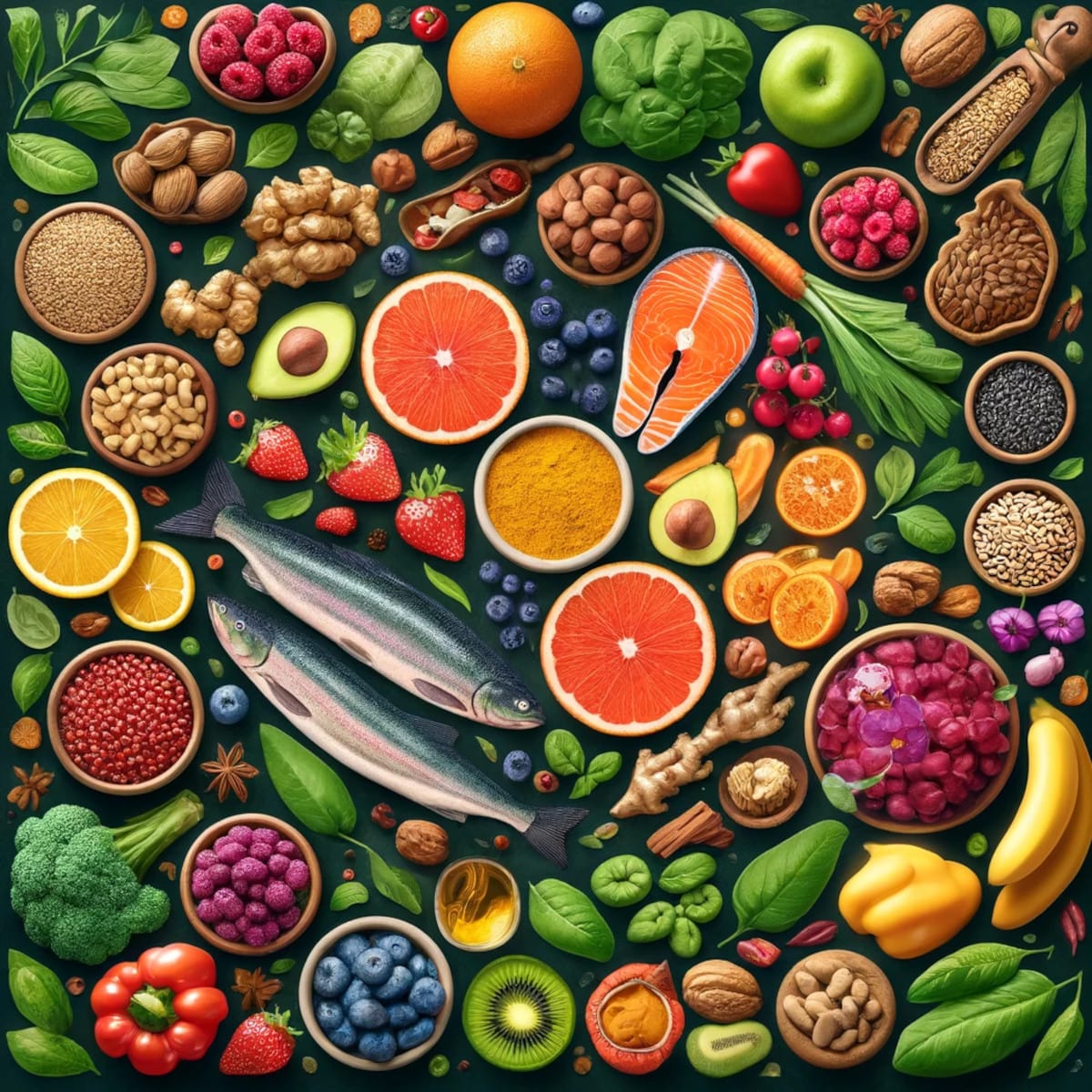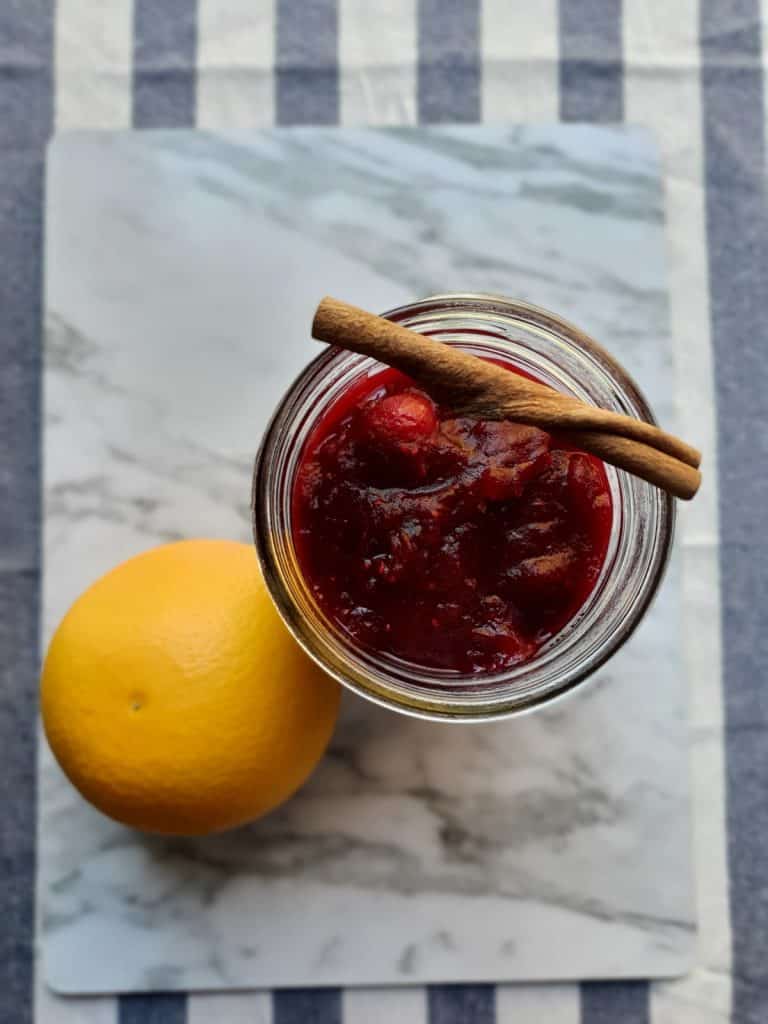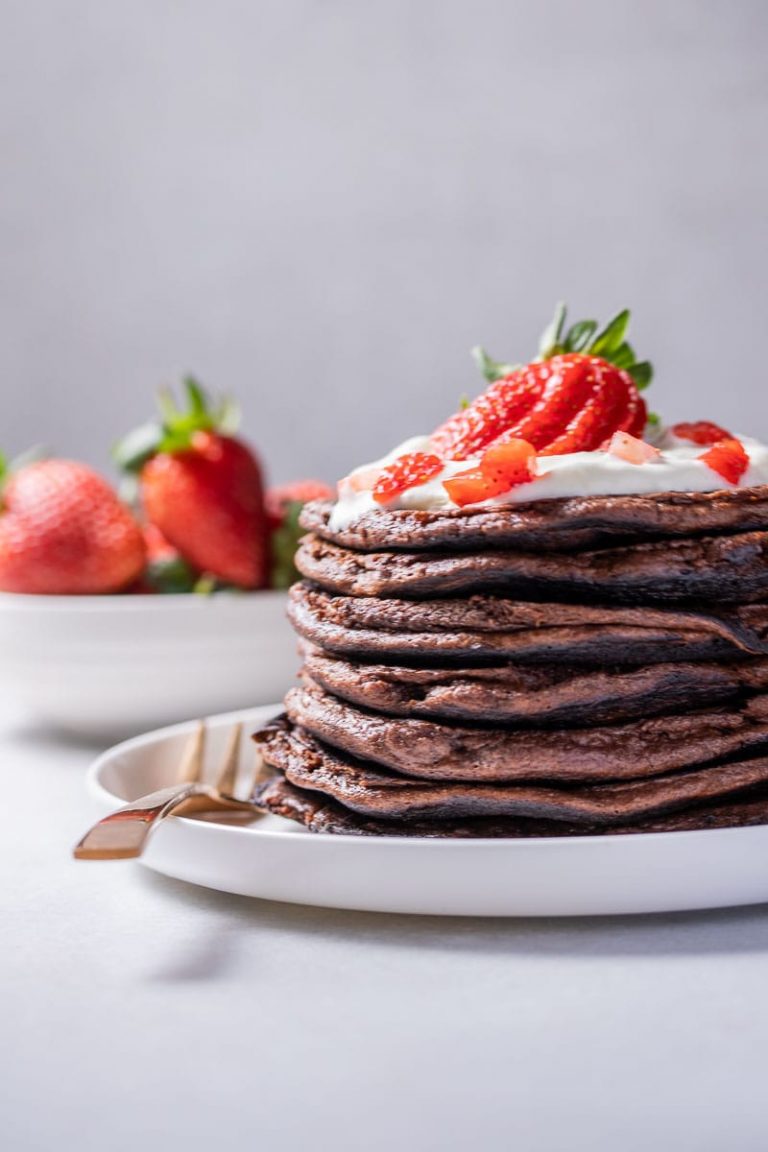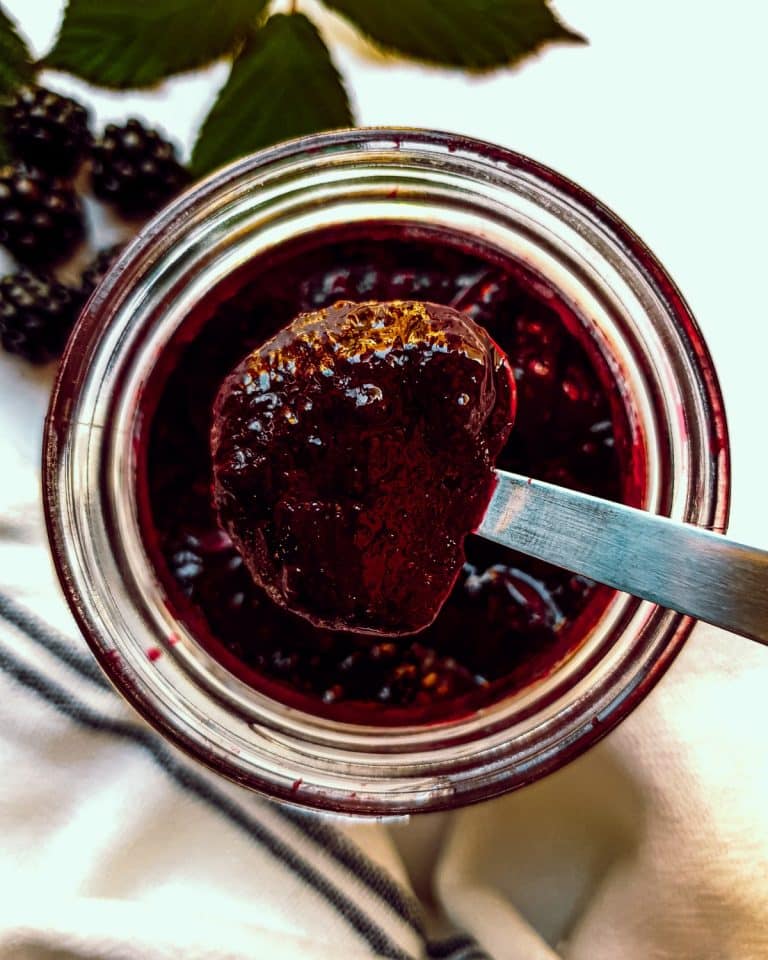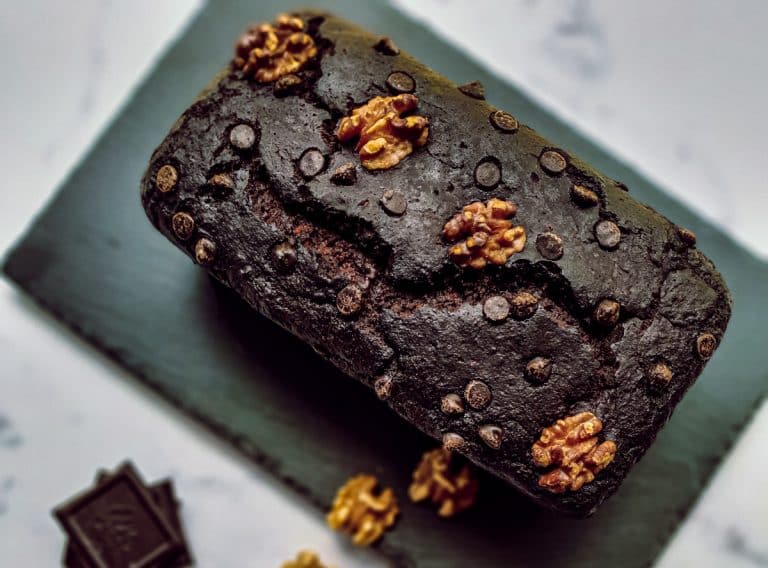Unveiling the Power of an Anti-Inflammatory Diet: A Path to Enhanced Well-being
This post may contain affiliate links from iherb.com and other companies, which means that if you click on one of the product links, I’ll receive a small commission. I only recommend products that I use and love. Thank you for your support.
Searching for the best health, it’s clear that food really matters. Among many diet plans, the anti-inflammatory diet stands out as a great choice for people wanting to reduce long-term inflammation and live a more energetic life. This guide explores what the anti-inflammatory way of eating is all about, highlighting the foods that are good for you and those that can cause inflammation.
Understanding Inflammation:
In simple terms, inflammation is how your body naturally reacts to threats like germs or injuries – it’s a key way to protect itself. But if this reaction doesn’t stop and keeps going, it can lead to a lot of health problems, such as arthritis or heart disease.
The Basics of an Anti-Inflammatory Diet:
Embarking on an anti-inflammatory journey involves embracing whole, nutrient-dense foods rich with antioxidants. These nutritional powerhouses counteract free radicals, the culprits behind inflammation.
What to Eat:
- Fruits: Berries, cherries, and pomegranates stand out for their anti-inflammatory value.
- Vegetables: Leafy greens and cruciferous veggies like broccoli and kale are indispensable.
- Fatty Fish: Salmon and mackerel, rich in omega-3s, are your allies against inflammation.
- Nuts and Seeds: Almonds and chia seeds not only satiate but soothe inflammation.
- Spices and Herbs: Turmeric and ginger add flavour while fighting inflammation.

Foods to Avoid:
Stay away from processed foods, refined sugars, and trans fats – the instigators of inflammation. Embrace natural sweetness from fruits and opt for whole grains to keep inflammation at bay.
Planning Your Anti-Inflammatory Diet:
A Beginner’s Guide:
Starting an anti-inflammatory diet is a journey of discovery. Begin by incorporating one or two anti-inflammatory foods into each meal, gradually phasing out the pro-inflammatory culprits from your diet.
Meal Planning for Weight Loss:
An anti-inflammatory diet, when paired with mindful portion control, can be a stimulant for weight loss. Focus on lean proteins, abundant vegetables, and healthy fats to fuel your journey.
Family-Friendly Recipes:
Creating meals that cater to the whole family while adhering to anti-inflammatory principles is simpler than you might think. Dishes like grilled salmon with a side of quinoa and roasted vegetables can become staples in your household.
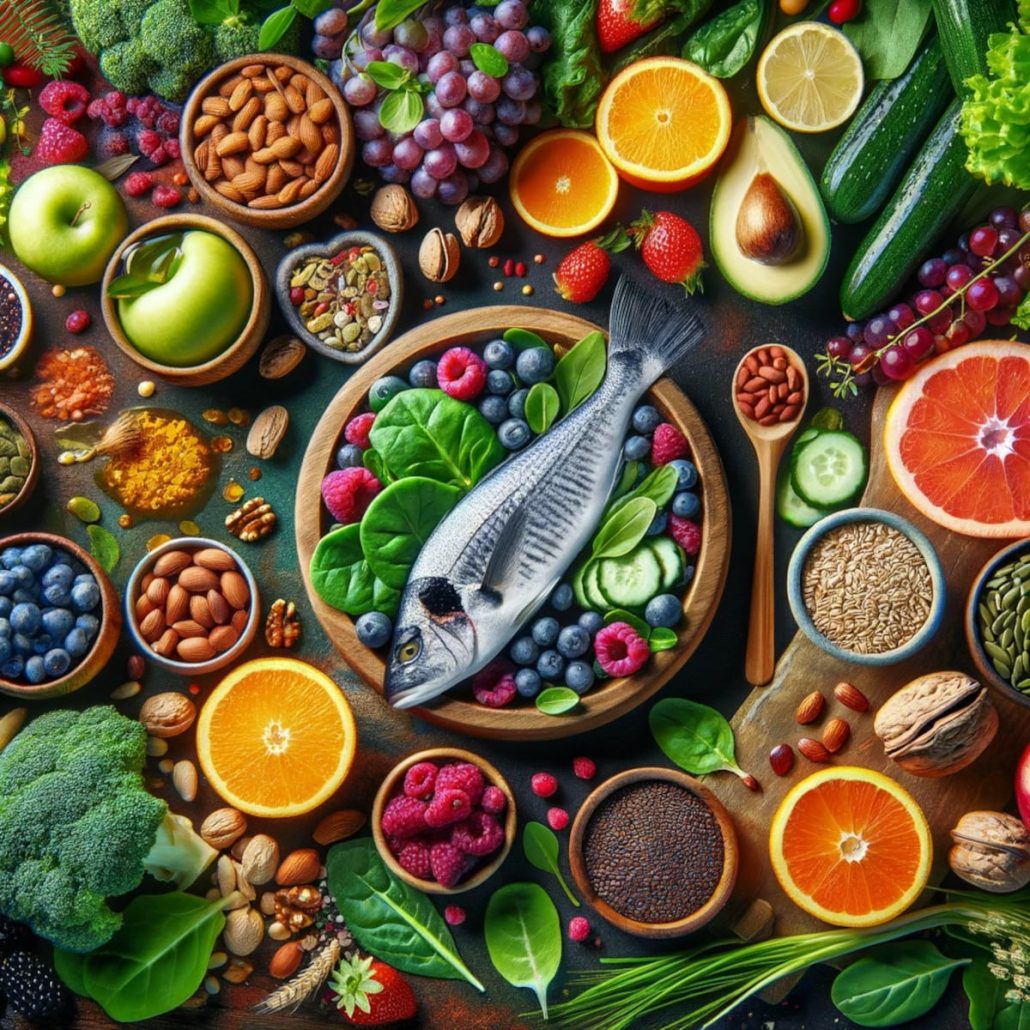
Special Considerations:
Arthritis and Autoimmune Disorders:
Individuals struggling with arthritis or autoimmune conditions may find solace in an anti-inflammatory diet. Tailoring your food choices can provide much-needed relief and improve your quality of life.
For individuals battling arthritis or autoimmune disorders, an anti-inflammatory diet can be a game-changer, potentially easing symptoms and enhancing quality of life. The key is to focus on foods known for their anti-inflammatory properties, such as omega-3-rich fatty fish, which can help reduce joint pain and stiffness. Incorporating turmeric into your meals, known for its active compound curcumin, can also offer relief due to its potent anti-inflammatory effects. However, it’s crucial to consult with healthcare professionals to tailor the diet to your specific needs and conditions, ensuring it complements your overall treatment plan.
Anti-Inflammatory Diet and Gluten: Understanding the Connection
The anti-inflammatory diet emphasizes consuming whole, nutrient-rich foods known for their health benefits, particularly in reducing chronic inflammation. This dietary approach often involves evaluating the role of gluten, a protein found in wheat, barley, and rye, and its potential impact on inflammation and overall health.
What is Gluten?
Gluten is a composite of two proteins, gliadin and glutenin, present in certain grains. It’s responsible for the elasticity of dough, giving bread its chewy texture. For most people, gluten is a harmless component of their diet. However, for individuals with celiac disease, non-celiac gluten sensitivity (NCGS), or wheat allergies, gluten can trigger significant health issues, including inflammatory responses.
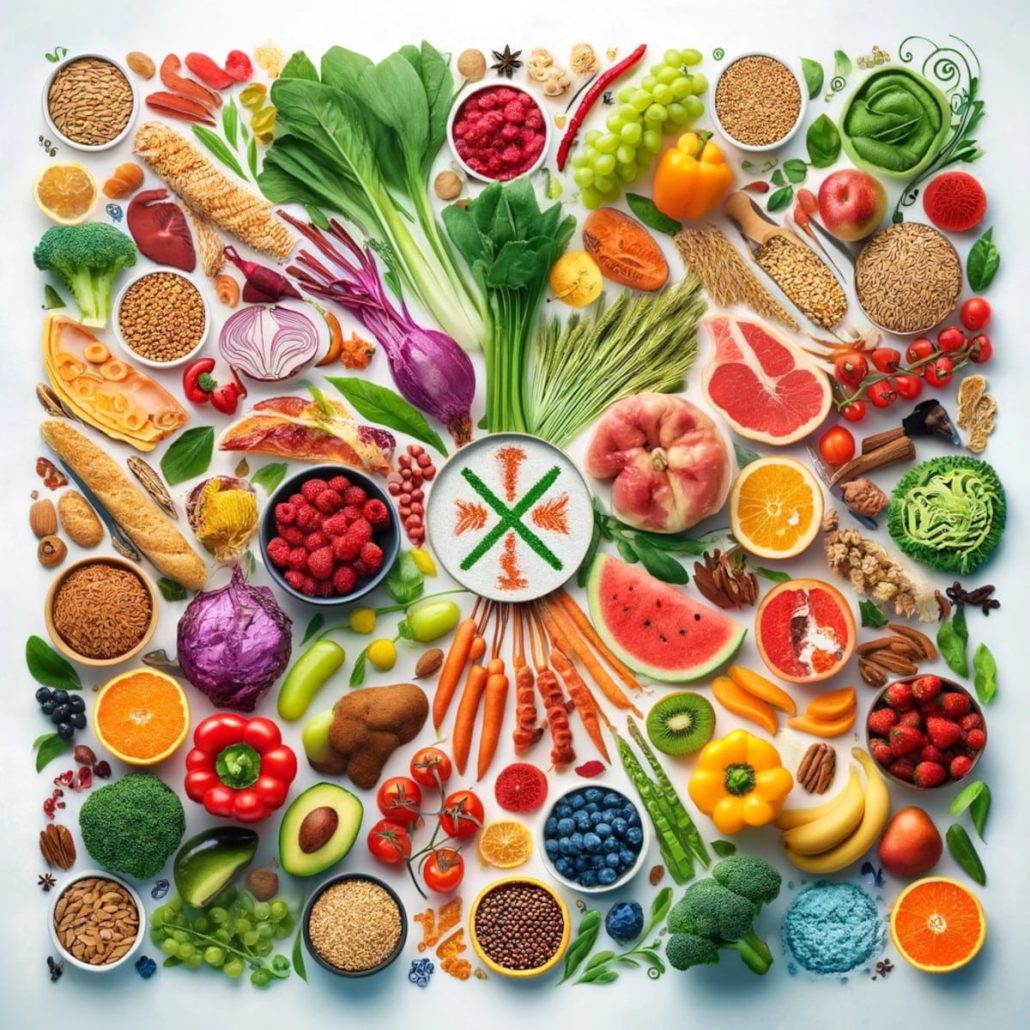
Gluten and Inflammation
For those with celiac disease, consuming gluten triggers an autoimmune response, leading to inflammation and damage to the small intestine’s lining. This inflammatory response can extend beyond the digestive system, affecting other parts of the body and contributing to various symptoms and health issues.
Even in the absence of celiac disease, some individuals may experience NCGS, where gluten consumption leads to symptoms similar to those of celiac disease without the autoimmune intestinal damage. These individuals may also benefit from a gluten-free diet to reduce inflammation and alleviate symptoms.
Incorporating Gluten-Free Choices in an Anti-Inflammatory Diet
- Focus on Naturally Gluten-Free Foods: The anti-inflammatory diet already prioritizes whole foods like fruits, vegetables, lean proteins, and healthy fats, most of which are naturally gluten-free. Emphasizing these foods can help reduce inflammation while avoiding gluten.
- Explore Gluten-Free Grains: There are several nutritious, gluten-free grains and seeds, such as quinoa, rice, millet, buckwheat, and amaranth. These can be excellent alternatives to gluten-containing grains, adding variety and nutrients to your diet.
- Be Mindful of Processed Gluten-Free Products: While many gluten-free alternatives are available, it’s important to be cautious, as some processed gluten-free foods can be high in sugar, fats, and additives, which may counteract the anti-inflammatory benefits of your diet.
- Read Labels Carefully: Gluten can be hidden in many products, including sauces, condiments, and processed foods. Always read labels to ensure products are genuinely gluten-free and don’t contain inflammatory additives.
If you suspect gluten may be contributing to inflammation or other health issues, it’s crucial to consult with healthcare professionals before making significant dietary changes. They can provide guidance, perform necessary tests to rule out celiac disease or other conditions, and help tailor the anti-inflammatory diet to meet your specific needs, ensuring it’s both effective and nutritionally balanced.
In summary, for those sensitive to gluten or with conditions like celiac disease, integrating gluten-free choices within the framework of an anti-inflammatory diet can offer additional benefits, reducing inflammation and enhancing overall well-being. It’s about making informed, personalized dietary choices that support your health and lifestyle.
Incorporating the Diet into Your Lifestyle:
For Busy Bees:
An anti-inflammatory diet doesn’t require endless hours in the kitchen. Opt for simple, wholesome meals like stir-fried veggies with a sprinkle of turmeric or a smoothie packed with leafy greens and berries.
In the hustle and bustle of daily life, finding time to prepare anti-inflammatory meals might seem daunting. However, integrating this diet into a busy schedule is simpler than it appears. Opt for easy-to-prepare dishes that don’t compromise on nutritional value. For instance, a quick morning smoothie can pack a punch with spinach, berries, and a spoonful of flaxseeds. For lunch, assemble a salad with mixed greens, cherry tomatoes, and grilled chicken, dressed with olive oil and lemon juice. These simple yet effective choices ensure you’re fueling your body with anti-inflammatory goodness without the need for extensive meal prep.
Throughout the Day:
Ensuring your daily diet consistently aligns with anti-inflammatory principles can significantly amplify its health benefits. Start your day with a breakfast that combines complex carbohydrates, healthy fats, and proteins, such as oatmeal topped with walnuts and blueberries, and a veggie omelette. For lunch, a quinoa salad with a variety of colourful veggies and a lemon-tahini dressing offers a satisfying and nutritious option. Dinner could be a piece of grilled salmon accompanied by a side of roasted Brussels sprouts and sweet potatoes, rich in fibre and antioxidants. Remember, it’s not just about the meals; snacks matter too. Opt for sliced apples with almond butter or carrot sticks with hummus to keep hunger at bay while adhering to your anti-inflammatory goals.
Mediterranean Inspirations:
Embracing a Mediterranean approach to the anti-inflammatory diet introduces a variety of flavours and nutrients. Incorporate olive oil, tomatoes, and whole grains into your meals for a Mediterranean twist.
Exercise and Other Lifestyle Factors:
Remember, an anti-inflammatory diet is most effective when paired with regular exercise, adequate sleep, and stress management techniques.
An anti-inflammatory diet, while powerful, is most effective when part of a holistic approach to health that includes regular physical activity, adequate sleep, and effective stress management. Moderate exercise can help reduce inflammation and improve overall well-being. Aim for at least 30 minutes of activity most days of the week, whether it’s a brisk walk, a yoga session, or cycling. Prioritizing sleep and finding ways to manage stress, such as through meditation or deep-breathing exercises, can further enhance the anti-inflammatory benefits of your diet.
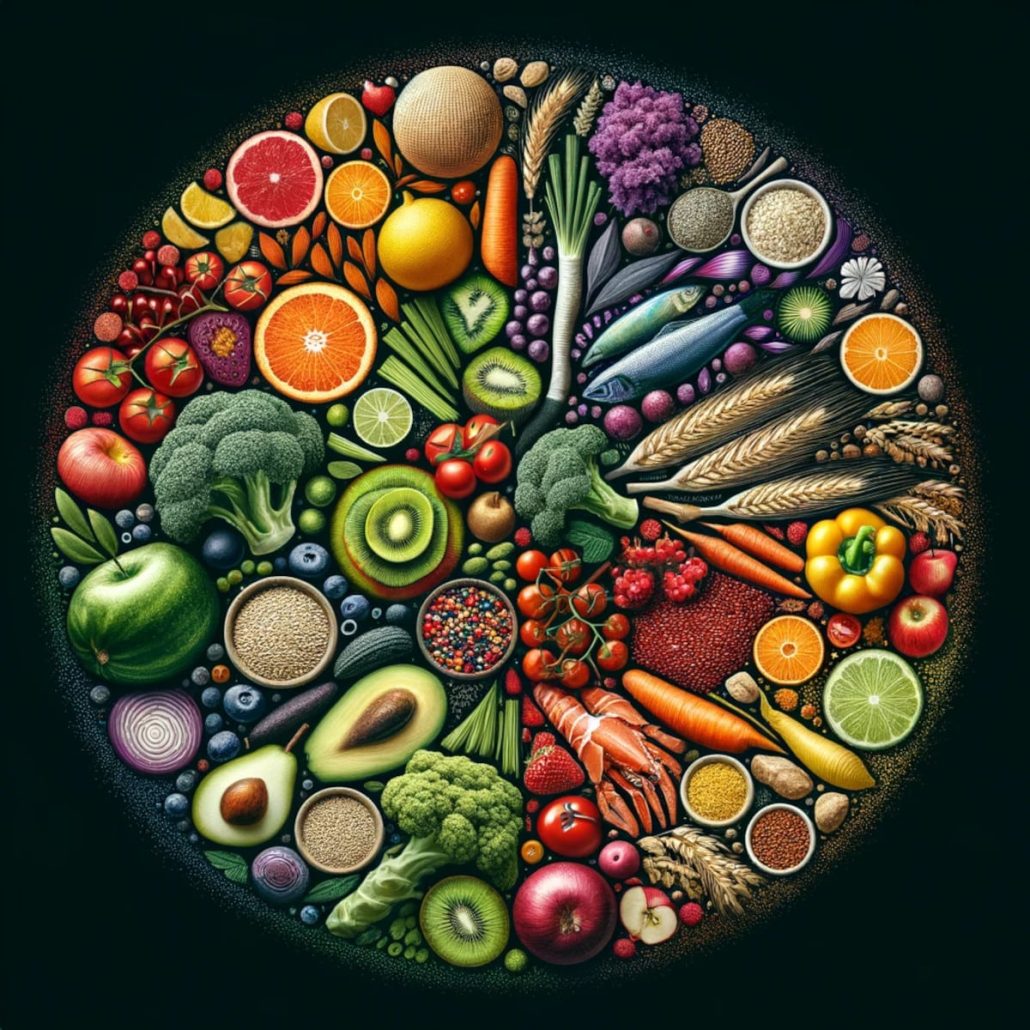
Complementing your diet with supplements:
Incorporating anti-inflammatory supplements into your lifestyle can complement a balanced diet and healthy lifestyle practices.
Here are 11 anti-inflammatory supplements that research suggests may help reduce inflammation:
- Curcumin: Found in turmeric, it’s known for its anti-inflammatory properties, especially beneficial for conditions like arthritis and metabolic syndrome. To enhance absorption, it’s often paired with piperine, found in black pepper.
- Fish Oil: Rich in omega-3 fatty acids EPA and DHA, which are effective in reducing inflammation related to various conditions including heart disease.
- Ginger: Contains gingerol and zingerone, compounds that may reduce inflammation related to conditions like diabetes.
- Resveratrol: An antioxidant found in grapes, blueberries, and red wine, known for its anti-inflammatory effects, particularly in chronic conditions like heart disease and insulin resistance. AKA trans-resveratrol in its active form.
- Spirulina: A type of blue-green algae with strong antioxidant effects that may help reduce inflammation and support the immune system.
- Vitamin D: Essential for immune health and may possess anti-inflammatory properties, particularly effective in reducing inflammation when levels are replenished in individuals with deficiencies. Vitamin D3 is the active form and the natural form produced by our bodies when exposed to sunlight
- Bromelain: An enzyme found in pineapple, known for its anti-inflammatory effects, particularly in reducing postoperative inflammation.
- Green Tea Extract: This contain EGCG, a compound with potent anti-inflammatory and antioxidant effects.
- Garlic: Contains allicin, a compound with anti-inflammatory properties, which may also help strengthen the immune system. But if you follow a Low Fodmap diet, stay away from it.
- Vitamin C: A powerful antioxidant that reduces inflammation by neutralizing free radicals and supports various functions of the immune system. Vitamin C is best taken in two dosages one in the morning and the second in the evening. The body absorbs it better in small dosages rather than one big one. The Vitamin C that I take contains Rose hips another great antioxidant.
- Magnesium: plays a crucial role in over 300 biochemical reactions in the body, including reducing inflammation. It helps lower CRP and other inflammatory markers and benefits cardiovascular health. It supports muscle and nerve function, regulates blood sugar, and promotes heart health. Integrating magnesium-rich foods or supplements into an anti-inflammatory diet enhances overall well-being and helps prevent chronic diseases.
These supplements may offer additional support in reducing inflammation alongside a healthy diet and lifestyle. However, it’s crucial to consult with a healthcare professional before starting any new supplement, especially if you have existing health conditions or are taking other medications.
FAQs:
Q: What are the immediate benefits of starting an anti-inflammatory diet?
A: You may notice increased energy, reduced joint discomfort, and an overall sense of well-being.
Q: Can this diet help with weight loss?
A: Yes, by focusing on nutrient-dense foods and reducing processed items, weight loss can be a natural outcome.
Q: How quickly can you see results?
A: While individual experiences vary, some benefits can be noticed within a few weeks.
Q: Can a gluten-free diet be anti-inflammatory?
A: Yes, a gluten-free diet can have anti-inflammatory properties, especially for individuals with gluten sensitivities, such as those with celiac disease or non-celiac gluten sensitivity (NCGS). For these individuals, consuming gluten triggers an inflammatory response, which can be mitigated by following a gluten-free diet. Moreover, focusing on a gluten-free diet that is rich in whole, unprocessed foods can further enhance its anti-inflammatory benefits. This includes eating plenty of fruits, vegetables, lean proteins, and gluten-free grains like quinoa and brown rice, which are all key components of an anti-inflammatory diet.
Q: If I don’t have celiac disease, could I still benefit from a gluten-free anti-inflammatory diet?
A: Yes, even without celiac disease, some individuals may experience benefits from a gluten-free diet, particularly if they have NCGS or a wheat allergy. Symptoms such as bloating, gas, diarrhea, and fatigue can be alleviated by eliminating gluten. Additionally, focusing on anti-inflammatory, gluten-free foods can contribute to overall well-being by reducing inflammation in the body. However, it’s important to make this dietary change under the guidance of a healthcare professional to ensure nutritional needs are met and to confirm that gluten is the source of the symptoms.
Q: How can I ensure my gluten-free diet is also anti-inflammatory?
A: To ensure your gluten-free diet is also anti-inflammatory, prioritize the inclusion of whole, nutrient-dense foods that are naturally free of gluten and known for their anti-inflammatory properties. Incorporate a variety of colourful fruits and vegetables, lean proteins like fish and poultry, healthy fats from sources such as avocados and olive oil, and gluten-free whole grains like quinoa and millet. Be cautious with processed gluten-free products, as they can sometimes be high in sugar, unhealthy fats, and additives that might promote inflammation. Reading labels, planning meals, and cooking at home can help you maintain a balanced, gluten-free, anti-inflammatory diet.
Embarking on an anti-inflammatory diet is a journey towards rejuvenation and vitality. By making mindful food choices, you can quell the fires of inflammation and unlock a new realm of health and wellness. Start today, and let each meal be a step towards a vibrant, inflammation-free life.
Explore more about foods that fight inflammation and understand the benefits of omega-3 fatty acids to enhance your anti-inflammatory diet. For those with arthritis, discover anti-inflammatory food suggestions to alleviate symptoms.
Hope you enjoy my post about Anti-Inflammatory Diet. Follow me on Instagram @ikarlina_l #ikarolina_l. Also, I am on Pinterest iKarolinaL and Facebook ikarolinal . It will make my day.
Share this post about Anti-Inflammatory Diet on social media. It might help someone.
Disclaimer: This post is based on my research, what I did through the internet, and my personal experience and opinion. The above is for general information only and not medical advice. My intent is not to force you to change your food habits and lifestyle. I am just showing you my food habits. I am just a health passionate. Always consult your doctor before making any big changes in your health/lifestyle. If you like the post then consider sharing it with other fit and healthy lifestyle enthusiasts on social media.
WANT SOME GLUTEN FREE RECIPE INSPIRATIONS?
Gluten Free Hot Cross Buns
High protein GF Gooey Brownie
EGG FREE CHOCOLATE COOKIES, NYC STYLE GLUTEN FREE
PROTEIN APPLE RHUBARB CRUMBLE, NO ADDED SUGAR
Protein Pumpkin Donuts
Pumpkin Oat Cookies
Christmas Cake Protein Donuts
Pumpkin Protein Bread
Double Chocolate Protein Banana Bread
Protein Magnum Ice Cream Bars
Chocolate Protein Pancakes
Red Velvet Protein Donuts
Protein Pumpkin Tart with Graham Cracker Crust

